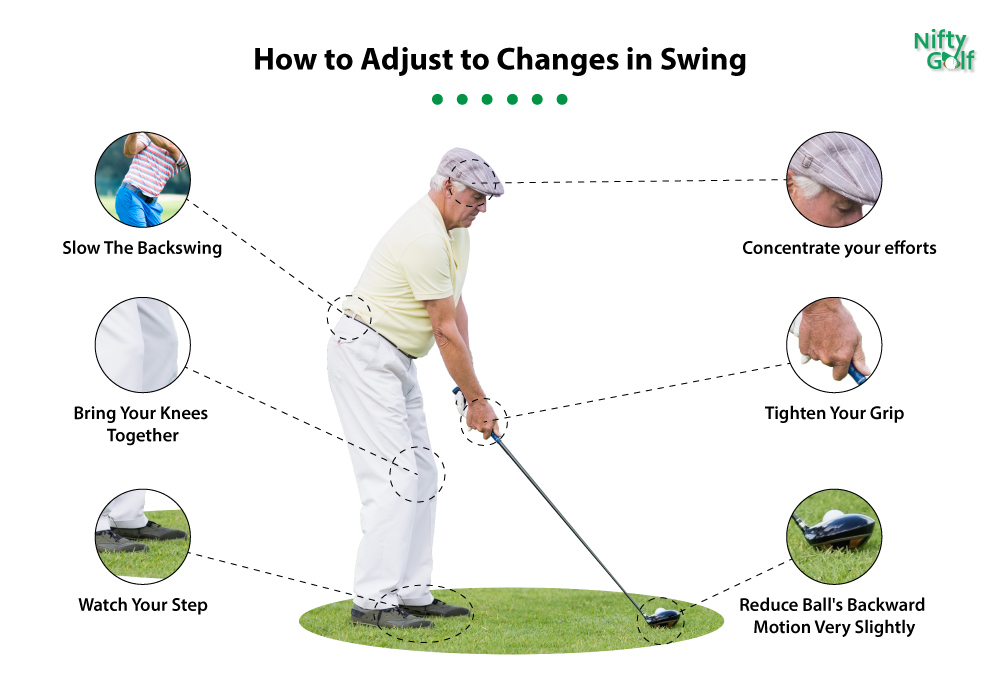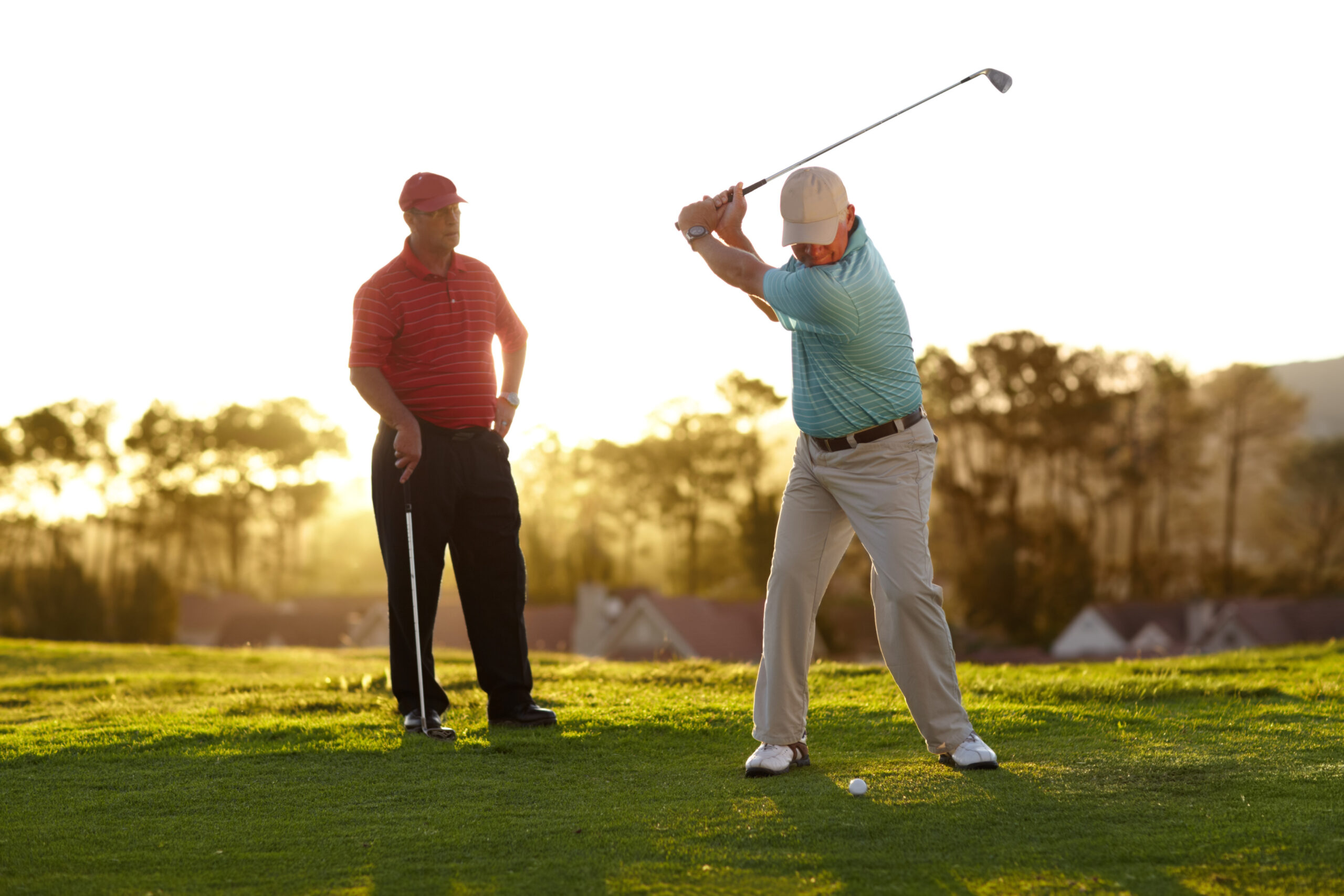Golf has been a popular pastime for many ages, offering a chance to get out in nature and enjoy the company of friends while getting some exercise. But as you get older, you may find that your swing has less power than it used to or that standing in the right way can be very uncomfortable.
But getting older doesn’t mean you must stop doing what you love. On the contrary, if you follow some simple advice, you can increase the power of your swing to levels not seen in years.
If you’re a senior who wants to keep golfing, you can learn some simple techniques that will help you improve your swing. This article will share some of the best golf swing tips for seniors. So keep reading.
Table of Content
How Golf Changes As You Get Older?
Strength
Even if you eat well and exercise consistently, your strength will deteriorate as you age. And it will impact your golf game since you won’t be able to hit the ball as far. Distance decreases by 3-4% in your 30s, about 5-6% in your 40s, 4-5% in your 50s, and 7-8% when you’re beyond 60 (Source: outofboundsgolf).
However, when you lose distance, you will hit more fairways. Use that expertise to club up, swing gently, and hit more greens as you age because most amateurs miss greens short.
Flexibility
As you age, your joints become less flexible. As a result, it may affect your golf swing in the form of a reduced shoulder turn. And, for most players, a shorter follow-through.
You should spend more time warming up if your flexibility is reduced. In this manner, it will take the final nine holes to feel loose.
Eyesight
Vision loss is another significant way that golf is affected by aging. Golf is already hard, and it can be hard to read the greens if you have poor vision. Make sure to stay up with your routine eye exams and to wear glasses or contact lenses.
How to Adjust to Changes in Swing

Senior golfers must understand that their game will change. Swing speed will reduce, distance will decrease, and balance will sometimes become more difficult.
The good news is that no matter your current level as a senior golfer, there are always ways to develop and grow. Follow these steps to adjust to changes in swing:
Tighten Your Grip
The hands of an older person are weak. For a more powerful swing, tighten your grip. It can improve your swing considerably by simply gripping the grips more firmly.
Concentrate your efforts
When you age, it’s tough to get a good swing in over a long distance. In addition, swings with a wide range of motion might be challenging for many seniors. Here, taking a more compact stance is the most practical strategy.
Stretch your legs farther apart than usual to slow down your action. This design allows the tip to be turned with considerably less effort during the swing. This method works effectively, although it still requires practice.
Watch Your Step
Once they get going on the swing, the elderly often wobble uncontrollably. An unbalanced body mass index is the root cause of this issue. The majority of golfers who have this issue are those that need to be more relaxed when swinging the club. When making a swing, turning out the right foot can help prevent this issue.
Reduce the Ball’s Backward Motion Very Slightly
Since this is common advice, golfers of all skill levels use it. However, many golfers have voiced that this process should only be carried out when the ground is in good condition. The closer the club is to the stance, the more power and precision it may provide.
Slow The Backswing
One of the best methods to improve your swing as a senior golfer is to practice drawing the club back slowly. The golfer can better maintain their concentration on the ball and the club’s path. Furthermore, the backswing is reduced in length while swinging at a high velocity.
Bring Your Knees Together
When senior citizens want to improve their golf swing and hit the ball further, they are often advised to maintain knee flexibility. Rigidity is the sport’s mortal enemy. Straightening the knees interferes with the motion of twisting the hips and shoulders. Knees and hips must work together to provide for a fluid swing.
Don’t Lift Arms
In addition to the shoulder injury risk, elders should also take care to prevent injury to the wrists and arms by coiling before each shot. When you elevate your arms, the club head may not make contact with the ball at all, but rather the ground and kick up a cloud of dust.
Upgrade Your Equipment
Check to see if you’re still using the best equipment for your game, as the game’s mechanics are likely to shift as you become older. Swap out your long irons for hybrids, which are much simpler to hit, and your low-lofted 3 woods for high-launch 3 woods, which are better suited to older golfers.
Shafts designed for seniors have the advantage of being both lighter and more bendable than standard shafts. Choosing the appropriate shaft for your swing speed can have a significant impact on the trajectory of your shots.
4 Golf Swing Tips for Senior Golfers

Many do not consider golf a sport, but it is a challenging activity that requires strength and flexibility. If you pay attention to your diet, workout routine, and flexibility, you can improve your game and extend your golfing career into old age.
If you’re a senior golfer who takes the game seriously, it’s time to make the minimal adjustments suggested here.
Exercise of the Body
Stretching and Flexibility Exercises
Your ability to swing depends on your degree of flexibility. An effective stretching routine for golfers includes exercises that target the muscles used in the golf swing, such as the shoulders, back, hips, and legs, to improve flexibility. Make stretching a part of your morning routine, and you’ll see improvements in your general well-being and even your golf game.
Yoga can be an excellent approach to improving your flexibility. It is a simple, soothing way to reach your goals.
Core Strengthening
Strong abs and hips are essential for a solid golf swing since these large muscles are where the motion begins and ends. Develop your core strength by following a healthy exercise routine designed for seniors.
Get There Early and Warm Up
When you arrive at the golf course, allow yourself enough time to hit a couple of balls and get your blood moving.
It is best to begin with a short iron, then progresses to a medium iron, and finally, a driver.
Don’t Overplay
While it’s true that retirement offers many people the opportunity to play more frequently, you should avoid the temptation.
Find a play routine that works for you, but remember to take breaks to let your mind and body relax and recharge. Playing too much can lead to injury.
Sharpen Your Skills in the Basics
Even if you’ve been at it for a while or are determined to become an expert in your chosen field, losing sight of the fundamentals is easy. However, the basics, such as grip, stance, and excellent posture, are vital building blocks. In addition, having a teacher observe your form is likely very helpful.
Look for Senior-Friendly Equipment
Golfing equipment is highly adaptable, as you may have seen from the vast selections available. In addition, it’s not a big secret that social groups are explicitly catering to the needs of the elderly.
Look for lightweight graphite clubs with a Senior indicated shaft flex which will help in quicker swing speeds. And choose golf balls with a low compression rating if you want to boost your swing speed. If your swing speed is slower, this will help make up for it.
Maintain Your Calm
Any golfer who loses control of their emotions is likely to perform poorly. Remember that golf is a game that requires both patience and practice to be successful.
While other golfers may swing wildly in an attempt at a flashy shot, you should instead take your time to plan out each shot with your score in mind.
After all, a power player may make a big splash when they score, but their frantic energy causes them to waste a lot of shots. Usually, you can win against it by using a well-thought-out, well-rehearsed plan and a challenging short game.
Conclusion
Being a senior citizen does not have to reduce one’s passion for sports. It won’t affect the gameplay itself; all it will do is change the way you have to play it. It is a fantastic method for staying physically active throughout the day.
While it’s true that becoming older can and probably will lower your golfing scores, it is no excuse to give up the game altogether. That’s why we have discussed all the tips on how to improve swings specifically for seniors. You should feel better now that you know there are things you can do to get better at all parts of your game as you age.

